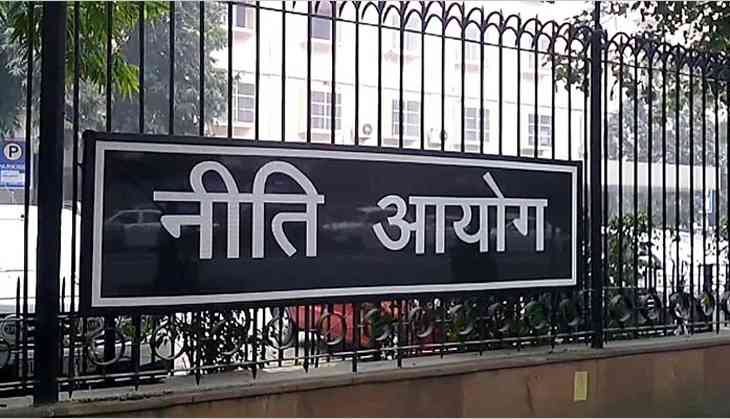Govt's corporatisation drive raises concerns in institutions like FTII & IIMC

The review of autonomous institutions by the NITI Aayog and the Prime Minister's Office has raised several doubts within the institutions concerned.
The first part of the review covered 114 autonomous bodies across seven ministries and departments formed under the Societies Registration Act . According to an Indian Express report, 42 of the 114 institutions have been recommended for “reduction” by either being shut down entirely or being merged with other entities, or being reorganised under a common blanket or being corporatised.
Based on the review, the central government now plans the “corporatisation” of eminent institutes like the Film and Television Institute of India (FTII), the Satyajit Ray Film and Television Institute (SRFTI) and the Delhi Public Library. It also plans to merge the Indian Institute of Mass Communication (IIMC) with either the Jawaharlal Nehru University Centre for Media Studies or the Jamia Millia Islamia’s A.J.K Mass Communication Research Centre.
The Indian Express report states that the review was done by the government to curb overlapping functions and definitional problems. It also stated that the “corporatisation” of the three listed bodies could translate into them becoming independent companies or a special purpose vehicle (SPV) could possibly be formed shortly to take over their functioning.
Merger of institutions
While many institutions have raised questions against the review’s recommendations, some have out rightly rejected it.
Highly placed sources told Catch that the Indian Institute of Mass Communication has written to the I&B Ministry objecting to the merger with either JNU Centre for Media Studies or Jamia Millia Islamia stating that the institution deserves to be an independent body on account of its many functions. IIMC stated that along with being an education institution training journalists, it also is a training academy for the Indian Information Service, Armed forces, foreign journalists and community radio professionals with 6 campuses in India. IIMC has not made an official comment on the issue.
Ramesh Dadhich, member secretary of the Indian Council of Social Science Research (ICSSR), spoke to Catch criticising the recommendations. He said, “This move clearly reflects the ad-hoc thinking of the government based on political expediency. It makes absolutely no sense.”
The review recommended that the Indian Council of Historical Research; The Indian Council of Philosophical Research and the Indian Council of Social Science Research which are all under the Ministry of Human Resource Development will either be clubbed under the ICSSR umbrella or merged with JNU.
Dadhich further added, “This is not born out of a long-term plan of restructuring these bodies, if it were, we could have debated whether it was right or wrong. It has clearly been done to satisfy political interests. Each of these institutions has been created with a purpose and is of different domains, it will only ruin these institutions. If you club different institutes that have absolutely different domains, it curbs their independence and autonomy. It hasn’t been done to cut down the government expenditure but feels more like a move to cut down the political wings of dissenting intellectuals.”
Corporatisation of institutions
The Film and Television Institute of India has been a sore issue for the government in the past. An attempt to corporatise the institute has touched a nerve with faculty and alumni alike.
Kedarnath Awati, Professor of music and former Dean of faculty at FTII, told Catch, “There is no clarity about what the government means by ‘corporatising’. Who will run the institutes? Who will fund these institutes? The government is trying to abdicate its responsibility to educate the youth of this country. Running government educational institutions for profit making is against the law. Presumably what will happen is that in order to make cuts in spending, fees of these institutes will go up exponentially.”
He added, “Trying to cut down on expenditure for education especially in the country like this is an ethical issue and the government is attempting the same on several levels.”
Resul Pookutty, an alumni of FTII and academy award winning music composer, told Catch, “People who have money in the country, they don’t go to FTII or SRFTI, they go to New York Film School or LA film school but people who have an ambition, interest and talent but don’t have the money who end up in institutions like ours. The least a government can do is provide affordable education to the youth in the sphere of their choice. Why are funds being cut down for educational institutes that encourage art and intellect? Why not corporatise IITs or IIMs or AIIMS? Why are words like privatise and corporatise being used for educational institutes? Is education a business or is it the responsibility of the government?
Gautam Ghosh, former chairman of Satyajit Ray Film and Television Institute feels that while reviewing educational institutions is a good practice to make the institutions more effective and viable, but the government must not abandon these institutions. “Profit making must not become the sole agenda of an educational institute. Sometimes autonomous institutions do not use funds effectively to improve the quality of education being imparted. But one must be very careful that education of art and culture and aesthetics must not become a business,” he said.
679 autonomous institutions across 68 ministries/departments have received Rs 72,206 crore in the 2017-18 annual budget. The second phase of the review is scheduled for later this month and will propose the setting up centres of excellence and institutes of higher learning. The third phase will later cover ministries and departments as well as bodies not formed under the Societies Registration Act.
First published: 18 June 2017, 5:51 IST

